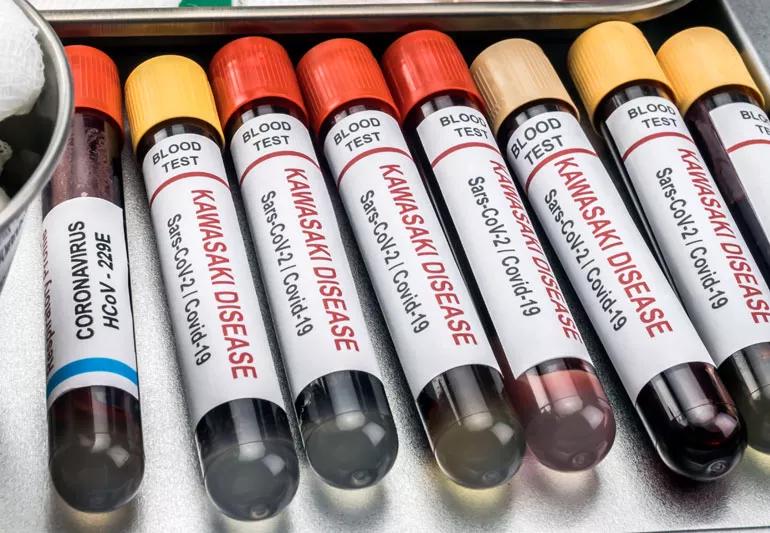A rare illness affecting kids with a link to COVID-19

Image content: This image is available to view online.
View image online (https://assets.clevelandclinic.org/transform/269d51f9-5d23-4280-bb6e-3fd89480d2f6/kawasakiDiseaseCovid-1225860231-770x533-1_jpg)
covid and Kawasaki disease
Recently, a wave of illness involving children and teens is starting to raise some concern.
Advertisement
Cleveland Clinic is a non-profit academic medical center. Advertising on our site helps support our mission. We do not endorse non-Cleveland Clinic products or services. Policy
The illness, which doctors are calling pediatric multisystem inflammatory syndrome (MIS-C), is believed to be linked to COVID-19, but there is much that is still unknown.
Pediatric rheumatologists Sirada Panupattanapong, MD and Elizabeth B. Brooks, MD, PhD share what we know so far about MIS-C.
MIS-C mirrors the symptoms of another rare childhood illness, Kawasaki disease, which involves inflammation of the blood vessels, specifically with the heart and coronary arteries. Pediatric multisystem inflammatory syndrome resembles Kawasaki disease in that it too can cause a surge of inflammation.
Other symptoms of Kawasaki disease can include:
MIS-C produces many of the same symptoms that Kawasaki disease does, but diarrhea and other gastrointestinal symptoms are usually present.
Kawasaki disease typically affects young children and is considered rare. Similarly, MIS-C remains rare as well.
Advertisement
Some kids who develop the new inflammatory condition also exhibit symptoms of toxic shock syndrome and sepsis, with abdominal pain, fever, low blood pressure and high levels of inflammation throughout the body.
Thought to occur at least two to three weeks after the peak of an infection with COVID-19, MIS-C appears to result from an immune system response linked to the virus.
For the most part, severe outcomes from COVID-19 in children are not common. Most children who become infected with the virus seem to be asymptomatic or develop very mild symptoms.
In Europe and the United Kingdom, medical experts began to see that children with the syndrome typically didn’t experience any signs of COVID-19 and most tested negative for the virus and the antibodies; however, the cases occurred following a surge in COVID-19 cases in the area where they lived. In the United States, the Centers for Disease Control (CDC) has included the need for either a positive COVID-19 test or positive antibody test to diagnosis MIS-C. Still, there are children who are suspected to have the syndrome, but do not test positive for COVID-19.
Research is still ongoing when it comes to pediatric multisystem inflammatory syndrome as medical experts try to understand and learn more about it.
MIS-C remains a rare phenomenon and there is no established standard treatment just yet, but health systems are working hard and collaborating on research and data. Most kids who come into the hospital because of the syndrome are treated in the intensive care unit. Treatment can include steroids, oxygen, high dose aspirin and intravenous immunoglobulin.
If parents suspect that their child is sick or experiencing symptoms of this new inflammatory syndrome, call your pediatrician right away. If symptoms worsen, proceed to your local emergency department.
To help protect your child from MIS-C, follow the guidelines to prevent getting COVID-19: Wear a face mask, practice social distancing, avoid touching your face and wash your hands.
Advertisement

Sign up for our Health Essentials emails for expert guidance on nutrition, fitness, sleep, skin care and more.
Learn more about our editorial process.
Advertisement
Bleeding is a risk and warrants taking care, but the reward of this lifesaving medication is great
Severe and debilitating headaches can affect the quality of your child’s life
With repeat injections over time, you may be able to slow the development of new wrinkles
Although it can be alarming, it’s normal to experience blood clots during menstruation
Stretch before heading outside, keep proper form and avoid jerking or twisting to throw snow
Type 2 diabetes isn’t inevitable with these dietary changes
Applying a hot or cold compress can help with pain
Pump up your iron intake with foods like tuna, tofu and turkey